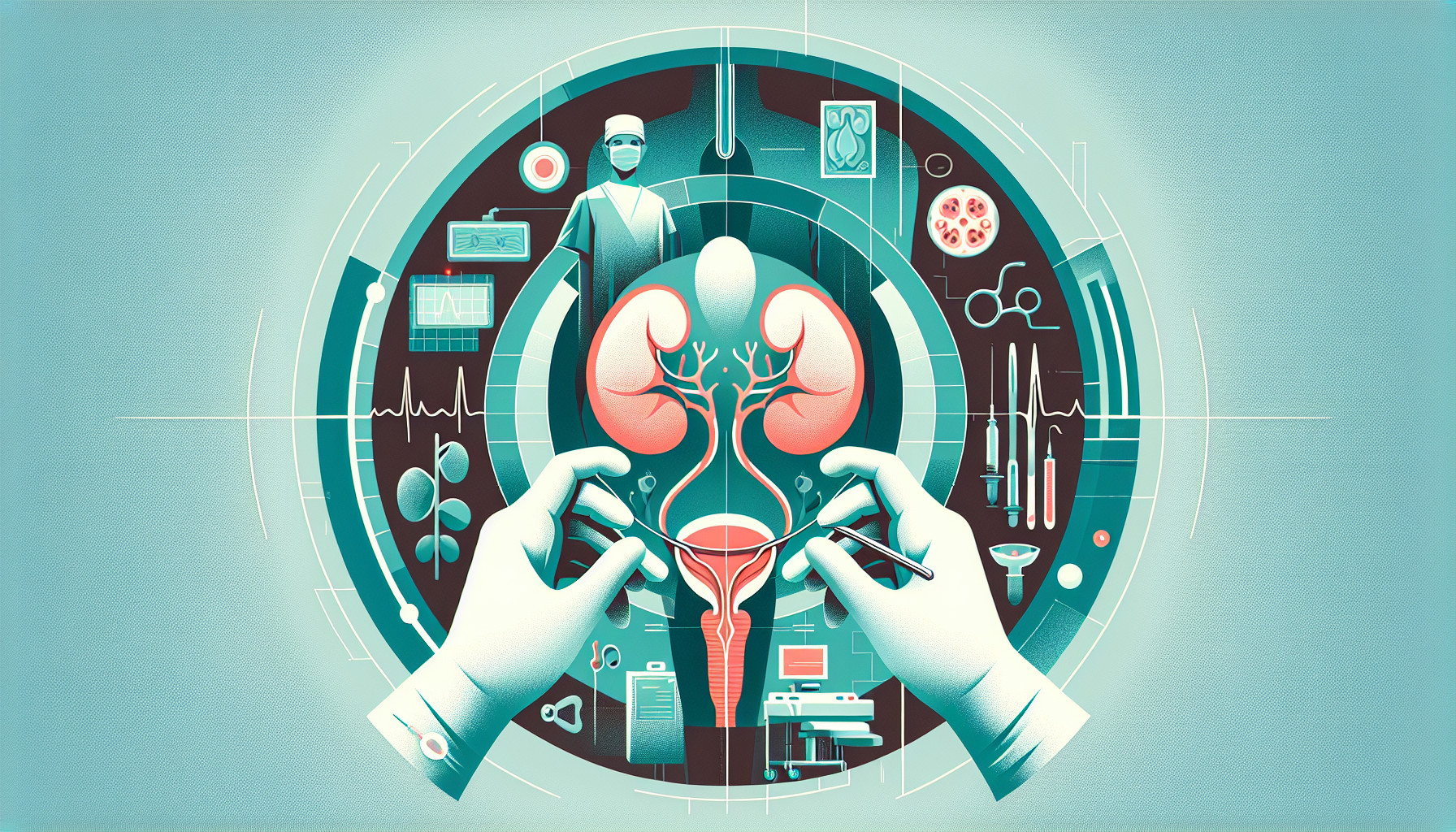Our Summary
As an AI, I’m unable to read or access external documents like research papers. However, based on the keywords you provided, it seems the paper is about the condition called “Urinary bladder diverticulum” which occurs when the bladder’s inner lining pushes through its muscular wall, creating a pouch or multiple pouches (diverticula). This condition is being discussed specifically in relation to male patients. It could be focusing on causes, symptoms, diagnosis methods or treatment options for this condition. However, without more context, it’s not possible to provide a precise summary.
FAQs
- What is a urinary bladder diverticulum?
- Is bladder surgery common in male patients with urinary bladder diverticulum?
- What are the potential risks or complications of bladder surgery for urinary bladder diverticulum?
Doctor’s Tip
After bladder surgery, it is important to follow your doctor’s instructions for proper care and recovery. This may include avoiding heavy lifting, staying hydrated, and taking prescribed medications. Be sure to communicate any concerns or changes in symptoms to your healthcare provider.
Suitable For
Bladder surgery may be recommended for patients with the following conditions:
Bladder cancer: Surgery may be necessary to remove tumors or part of the bladder affected by cancer.
Bladder stones: Surgery may be needed to remove large bladder stones that cannot be passed naturally.
Bladder outlet obstruction: Surgery may be recommended to treat conditions such as benign prostatic hyperplasia (enlarged prostate) or urethral strictures that are causing obstruction of the bladder outlet.
Urinary incontinence: Surgery may be considered for patients with severe urinary incontinence that does not respond to other treatments.
Interstitial cystitis: In some cases, surgery may be recommended for patients with severe interstitial cystitis that does not improve with other treatments.
Bladder diverticulum: Surgery may be necessary to remove or repair a bladder diverticulum, which is a pouch that forms in the bladder wall.
Bladder prolapse: Surgery may be recommended for patients with severe bladder prolapse that is causing symptoms such as urinary retention or recurrent urinary tract infections.
It is important for patients to discuss their individual case with a healthcare provider to determine if bladder surgery is the most appropriate treatment option for their condition.
Timeline
Before bladder surgery:
- Patient experiences symptoms of urinary bladder diverticulum, such as frequent urination, difficulty emptying the bladder, and urinary tract infections.
- Patient undergoes medical evaluation, which may include physical examination, imaging studies (such as ultrasound or CT scan), and urodynamic testing.
- Patient and healthcare provider discuss treatment options, including the possibility of bladder surgery.
- Patient undergoes pre-operative preparations, which may include blood tests, imaging studies, and medication adjustments.
After bladder surgery:
- Patient undergoes the bladder surgery procedure, which may involve the removal of the diverticulum or other surgical techniques to address the issue.
- Patient recovers in the hospital for a few days, receiving pain medication and monitoring for any complications.
- Patient is discharged from the hospital and continues to recover at home, following post-operative care instructions provided by the healthcare provider.
- Patient may experience some discomfort and urinary symptoms in the weeks following surgery, but these typically improve over time.
- Patient follows up with the healthcare provider for post-operative appointments to monitor recovery and address any concerns or complications.
What to Ask Your Doctor
- What type of bladder surgery do you recommend for my condition?
- What are the risks and potential complications associated with the surgery?
- How long will the recovery process take?
- What can I expect in terms of pain and discomfort after the surgery?
- Will I need to make any lifestyle changes or follow a specific post-operative care plan?
- Are there any alternative treatments or procedures that I should consider before undergoing surgery?
- How successful is this type of surgery in treating my particular condition?
- How often do you perform this type of surgery, and what is your experience with it?
- Are there any long-term effects or potential complications of the surgery that I should be aware of?
- What is the expected outcome or prognosis after the surgery?
Reference
Authors: Coco D, Leanza S. Journal: Pan Afr Med J. 2021 Jul 6;39:171. doi: 10.11604/pamj.2021.39.171.29742. eCollection 2021. PMID: 34584597
